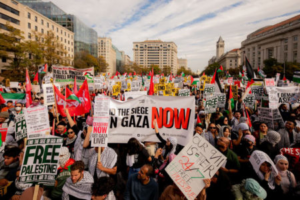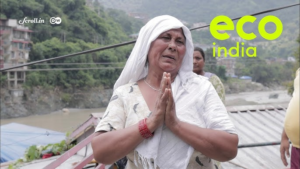(Condensed by us from articles by Leila Salazar-López, Lindsey Allen in Common Dreams, and Peter Koenig in Countercurrents.org.)
Called “the lungs of the Earth”, the Amazon rainforest and its lush trees make roughly 20% of the oxygen on Earth. But the Amazon is presently on fire. In the about 20 days since they were discovered, the fires have consumed at least 74,000 ha of tropical rain forest. The skies of Sao Paolo, Brazil are black; the smoke is already trespassing the border to Argentina and may have reached Buenos Aires. NASA reports that about 3.2 million square kilometers of South America are covered by smoke.
The flames are massive and are devastating the jungle at a rapid pace. According to the Brazilian National Institute for Space Research (INPE), the fires increased by 83%—almost double—from what they were last year, and, not coincidentally, at least 68% of protected areas have been affected. The Brazilian Space Research spotted 72,000 fires, of which 9,000 were found in the last week alone. The Amazon is home to 34 million people, including over 350 indigenous groups.
As the Amazon burns, it drastically contributes to the climate crisis—both from the carbon released by the forest fires and from the loss of trees’ ability to absorb carbon in the future. Amazonia comprises one of the world’s largest rainforests, also known as Mother Earth’s lungs. A healthy Amazon is critical to the survival of not only the local and about 400 indigenous groups that call it home but to our entire planet.
It’s a heartbreaking global emergency that requires immediate action.
Now that the world is finally paying attention to the Amazon Basin, it’s important to also understand that it is the pro-big business and anti-environmental position of Brazilian President Bolsonaro, which erroneously frames forest protections and human rights as impediments to Brazil’s economic growth, that is directly responsible for these fires. Since Bolsonaro gained power, there has been rapid deforestation in the Brazilian Amazon. These recent fires were intentionally set by farmers who, responding to calls from Bolsonaro to develop the region, wanted to clear their land so it could be used for agriculture. As Bolsonaro put it, “the Amazon is open for business.”
Illegally clearing land with fire is a horrible, corporate-driven practice that is taking place across the globe. Thus, at this very time when forest fires are burning down Amazonia, even larger jungle fires are burning down the Central African rainforest, which is another important oxygen-generating lung of the world. In just two days, August 22 and 23, NASA recorded more than 6,900 fires in Angola and about 3,400 in the Democratic Republic of Congo (DRC), about 5 times as many as in the same two days in the Brazilian Amazon region. These fires are hardly being reported in the Western media. It is very much possible that the same globalised corporations interested in Brazil’s natural resources underlaying the Amazon forests, are also interested in the enormous reserves of minerals and hydrocarbon resources of Central Africa, and so have got the governments of DRC and Angola to let the jungle burn.
The Amazon is burning, the Arctic is burning, and the list of scorched lands seems to continuously grow: Alaska, Greenland, Siberia, across Europe, Indonesia and across Central Africa.
These are indeed the worst of times. But, as we face the real threats to life and to global civilisation posed by accelerating climate change, a global climate change movement is simultaneously emerging. This is a movement encompassing thousands of local groups across the world. It is also accompanied by climate action from above—such as the emergence of a Green New Deal advanced by Alexandria Ocasio Cortez followed by aggressive climate plans by Jay Inslee and Bernie Sanders. But of course, these plans will only be realised when this is accompanied by a determined non-violent grassroots movement from below. A global climate movement’s global demands will only be as effective as the strength of power from below manifested through non-cooperation and non-violent action in the streets and voter action at the polls.
We are in a fight for our lives and for the generations to come. Locally, city-wide, state-wide, nationally, internationally we must join the fight as if our lives depend upon it, because they do. Now’s the time to join the movement for stopping global climate change and for climate justice. Raise your voice. Now. Join the Global Day of Action Against Climate Change on September 20.
(Leila Salazar-López is executive director of Amazon Watch, Lindsay Allen is executive director of Rainforest Action Network, and Peter Koenig is a Research Associate of the Centre for Research on Globalisation.)
The Amazon Is on Fire—Indigenous Rights Can Help Put It Out
Naomi Klein
It was an epic case of projection. Lashing out at the attacks on his Amazon-incinerating policies, Brazil’s President Jair Bolsonaro accused French President Emmanuel Macron of having a “colonial mindset.”
The not even vaguely funny joke is that it is Bolsonaro who has unleashed a wave of unmasked colonial violence inside his country. This is a politician who came to power railing against indigenous people, casting their land rights as an unacceptable barrier to development in the Amazon, where cultures intrinsically linked to the rainforest have consistently resisted mega projects and the expanding frontier of agribusiness. “If I become president there will not be a centimeter more of indigenous land,” he said, while ominously declaring that “we’re going to give a rifle and a carry permit to every farmer.”
Much as Trump’s relentless anti-immigrant rhetoric has emboldened white nationalists to commit real-world hate crimes, Christian Poirier of Amazon Watch explains that in Brazil, “Farmers and ranchers understand the president’s message as a license to commit arson with wanton impunity, in order to aggressively expand their operations into the rainforest.” According to Brazil’s National Institute for Space Research, deforestation in the Amazon this July went up by a staggering 278 percent compared to the same month last year (the institute’s director was promptly fired after sharing these and other inconvenient findings).
Such a powerful sense of impunity has permeated the region that ranchers have held “fire days,” coordinating when they set land ablaze, and attacks on indigenous communities have seen an alarming escalation. This atmosphere of lawlessness, moreover, surrounds Bolsonaro’s entire administration. Many Brazilians consider the 2018 presidential elections to have been stolen from Luiz Inácio Lula da Silva, by far the most popular politician in the country. Da Silva couldn’t run because he was locked up after a corruption trial that has since been revealed to have been rife with collusion and irregularities, a process presided over by the judge who went on to become Bolsonaro’s own justice minister.
The arsonists of the Amazon are driven by many factors—chief among them the quest for profits from beef, soy and lumber. But beneath them all is the very thing Bolsonaro accuses his critics of possessing: the “colonial mindset.”
By no means unique to Brazil’s landed oligarchy, this mindset is grounded in the belief that European-descended settlers have a manifest destiny to profit from an ever expanding frontier; when indigenous people stand in the way, they must be removed, by any means necessary. Bolsonaro summarised this brutal belief system in stark terms two decades ago: “It’s a shame that the Brazilian cavalry hasn’t been as efficient as the Americans, who exterminated the Indians.”
This sense of divine entitlement to other people’s land in the name of progress is driving the arson in the Amazon—and it is driving the planetary-scale arson that has created the global climate emergency as well.
Put simply, a great deal of the coal, oil and gas that we must leave in the ground if we want a habitable climate lies under land to which indigenous people have an ancestral and legal claim. The willingness by governments around the globe to violate those international protected rights with impunity is a central reason why our planet is in a climate emergency.
This is not just about Bolsonaro. Recall that one of Trump’s first acts as president was to sign executive orders pushing through the Dakota Access and Keystone XL pipelines, two fossil fuel projects fiercely opposed by indigenous people in their path. And now there’s Trump’s new obsession with purchasing Greenland, an indigenous-controlled territory alluring to his administration mainly because melting ice linked to climate breakdown is freeing up trade routes and newly accessible stores of fossil fuels. From within his own colonial mindset, Trump feels it’s his right to grab the island, much like everything else he feels entitled to grab.
The violation of indigenous rights, in other words, is central to the violation of our collective right to a liveable planet. The flip side of this is that a revolution in respect for indigenous rights and knowledge could be the key to ushering in a new age of ecological equilibrium. Not only would it mean that huge amounts of dangerous carbon would be kept in the ground, it would also vastly increase our chances of drawing down carbon from the atmosphere and storing it in well cared-for forests, wetlands and other dense vegetation.
There is a growing body of scientific research showing that lands under indigenous control are far better protected (and therefore better at storing carbon) than those managed by settler governments and corporations. Of course, indigenous leaders have been telling us about this link between their rights and the planet’s health for centuries, including the late Secwepemc intellectual and organiser Arthur Manuel (particularly in his posthumously published book, “The Reconciliation Manifesto”). Now we are hearing this message directly from the people who make their home in our planet’s burning lungs. “We feel the climate changing and the world needs the forest,” Handerch Wakana Mura, an Amazonian tribal leader, told a reporter.
Earlier this year, the Intergovernmental Panel on Climate change issued a Special Report on Climate Change and Land, which stressed the importance of strengthening indigenous and community land rights as a key climate change solution. A broad coalition of Indigenous organisations greeted the findings with a statement that began, “Finally, the world’s top scientists recognise what we have always known … We have cared for our lands and forests—and the biodiversity they contain—for generations. With the right support we can continue to do so for generations to come.”
Colonialism is setting the world on fire. Taking leadership from the people who have been resisting its violence for centuries, while protecting non-extractive ways of life, is our best hope of putting out the flames.
(Naomi Klein is Senior Correspondent at The Intercept and the inaugural Gloria Steinem Chair of Media, Culture and Feminist Studies at Rutgers University.)




